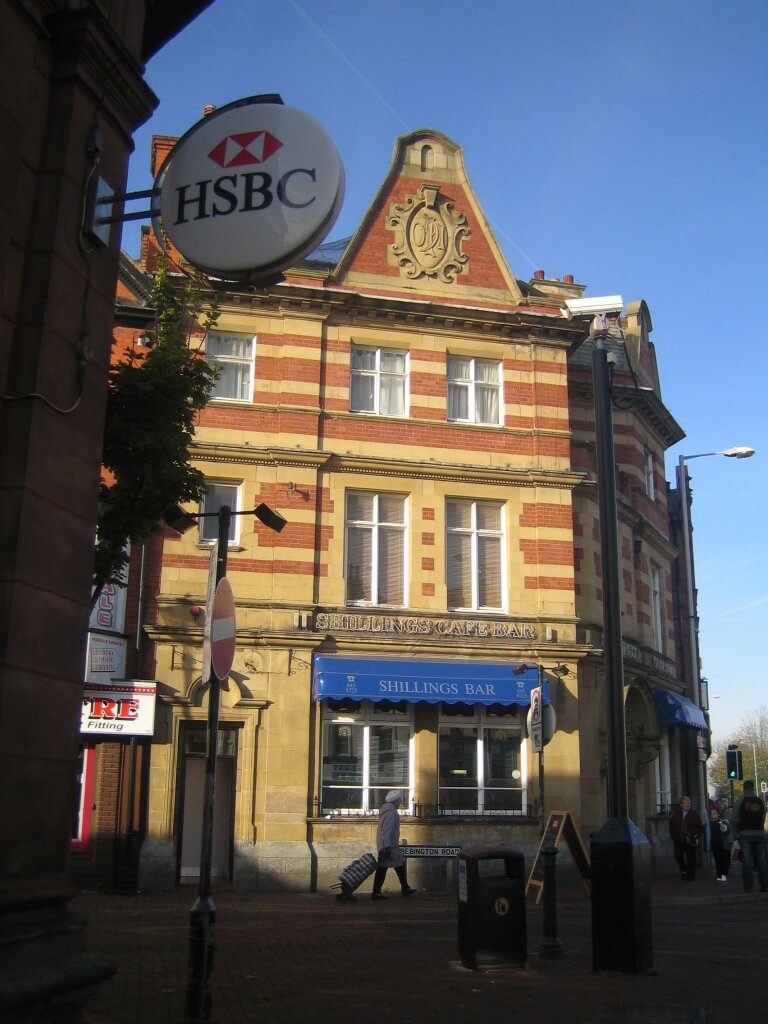One of the great advantages of Community Led Housing is that it does not subscribe to a one-size-fits-all model. The process can take many forms, which is a major part of its appeal. Community Led Housing can be adapted to create the right solution for you and your project.
On this page, you can explore the different models alongside some practical examples to see what might work for you.

Community Land Trusts
Community Land Trusts (CLTs) are set up by local people to develop, manage, and own homes as well as other assets in their community. CLTs provide affordable homes for local people by acquiring land and holding it as a community asset in perpetuity. CLTs act as long-term stewards of housing, ensuring that it remains genuinely affordable, based on what people actually earn in their area – not just for now but for every future occupier.
Granby Four Streets Community Land Trust
The award-winning Granby Four Streets Community Land Trust in Toxteth is creating a thriving and vibrant mixed community, building on the existing creativity within the area. Their vision for Granby Four Streets is a neighbourhood which:
The CLT has developed eleven 2-bed terraced houses, of which 5 have been sold (the remaining 6 are rentable, affordable homes). They are now looking at delivering their next major project – The Four Corners.
For more information about Granby Four Streets Community Land Trust, visit the link below.
Housing Co-operatives
Co-operatives, whether housing or business, are democratic, not-for-profit organisations run by and for their members. The co-operative movement’s values are deep-rooted, comprising self-help, self-responsibility, democracy, equality, equity, and solidarity.
When these values are applied to Housing Co-operatives it means:
Housing Co-operatives are non-hierarchical property management companies, involving groups of people who provide and collectively manage affordable homes for themselves either as tenants or shared owners. Unlike some other types of community led housing, the membership of a co-op is limited strictly to its residents. The community in question is made up of the people living together. The housing co-operative model works well for both buying and renting homes.
Persons Unknown Housing Co-operative
Persons Unknown Housing Co-operative is a group of six people who are developing a scheme of 8-10 genuinely affordable, secure, environmentally-sustainable and community-centred homes for local people in South Liverpool. Co-operation, democratic decision-making and mutual aid are their key values. They want a safe and affordable future in the city, so are taking their housing into their own hands. In doing so, they aim to create an outward-facing housing co-operative that supports others in their community to do the same.
For more information visit the link below.
Co-housing Schemes
Co-housing is an approach to creating a community based on values, rather than geography. Often referred to as an intentional community, these values are generally linked to a shared vision for living in a certain way. While the ways may differ from scheme to scheme, they tend to involve increased connectivity, the spirit of looking out for one another, and being environmentally-conscious.
While co-housing has a big focus on living communally, it’s different from a commune. Residents have their own homes, supported with shared spaces where people can meet, eat together, and share resources.
The common characteristics of a co-housing project include the following:
Older Women’s Co-Housing
Older Women’s Co-Housing (OWCH) is a ground-breaking mutual co-housing scheme in North London made up of 25 self-contained flats, plus a common room, guest room, laundry, and gardens. 17 of these flats are owned by their occupants on 250-year leases, with the remaining 8 available for social renters on assured tenancies:
The group came together to create their own community as an alternative to living alone and with a collective determination to stay self-dependent and active as they get older. OWCH sees co-housing as a way of living as co-operative, friendly neighbours in properties they own and manage.
For more information about Older Women’s Co-Housing, visit the link below
Self-help Housing Projects
Self-help housing projects involve small, community-based organisations bringing empty properties back into use. This is often done without mainstream funding and with a strong emphasis on construction skills, training and support. It has come to be known as self-help housing, since it often provides a range of opportunities for hands-on involvement by members during the refurbishment process.
Self-help Housing can provide an ingenious way of regenerating neighbourhoods, along with meeting housing need. It can cover empty houses as well as commercial buildings whose use can change. This includes things like shops being renovated to create live-work opportunities for residents or accommodation plus space for new commercial activities. Likewise, non-residential buildings such as redundant pubs and offices can be used to create new accommodation.
Self-help stands in contrast to self-build projects, which involve the building of new homes, rather than the refurbishment of existing properties.
Leeds Action To Create Homes Limited
Leeds Action To Create Homes Limited (LATCH) was established in 1989 to bring empty and run-down homes back into use. It refurbishes houses with unemployed volunteers, helping them to gain valuable practical skills, confidence, and work experience. When the homes are fully modernised, they provide supported housing for people who are homeless or in housing need.
Community Self-Build
Community self-build involves groups of local people in need of housing building homes for themselves with external support and managing the process collectively. .
St Bernards, Liverpool
Housing People, Building Communities is a charity which aims to improve the supply of good quality, affordable new homes in the city. It seeks to create socially-inclusive and cohesive communities, while empowering those with a housing need to help themselves through a combination of self-building, volunteering, and community involvement.
The recently completed St Bernard’s project was developed in partnership with Onward Housing on land generously gifted to HPBC by the Liverpool Roman Catholic Archdiocese. New life was breathed into St Bernards Church with eleven 3-storey, 3-4 bedroom houses created alongside four new 2-bed apartments and a 3-bed house in the grounds.
For more information about the St Bernard’s project, visit the link below
Community Custom Build
Custom build is when people are able to specify an individual home through a more ‘hands-off’ journey. Under this model, an enabling developer delivers a spectrum of services ranging from creating a serviced plot all the way to delivering a complete bespoke turnkey home for an individual or group of individuals.
Fishponds Road, Bristol
Bristol Community Land Trust completed their first development of twelve homes on Fishponds Road in the city. It has been a resounding success and is now fully-occupied – a clear demonstration of what can be achieved under the community custom build model.
The project was built on land that the group acquired from Bristol City Council, with the properties themselves being a mix of affordable rented homes and shared ownership. The project was focussed from the start on creating an affordable, community-focused development, with each resident being a member of the CLT.
Not only were the residents involved in the design phase of the development, they were able to finish their homes on their own, if they chose to do so. By sharing the work with contractors on the project, residents were able to earn “sweat equity”, demonstrating the physical donation they made to the project. This would either increase their share in the property or reduce the rent they are expected to pay.
Get in touch
Breaking Ground is committed to assisting Community Led Housing Projects across the North West. For more information or to arrange a meeting, contact us today on 0151 933 1311.





